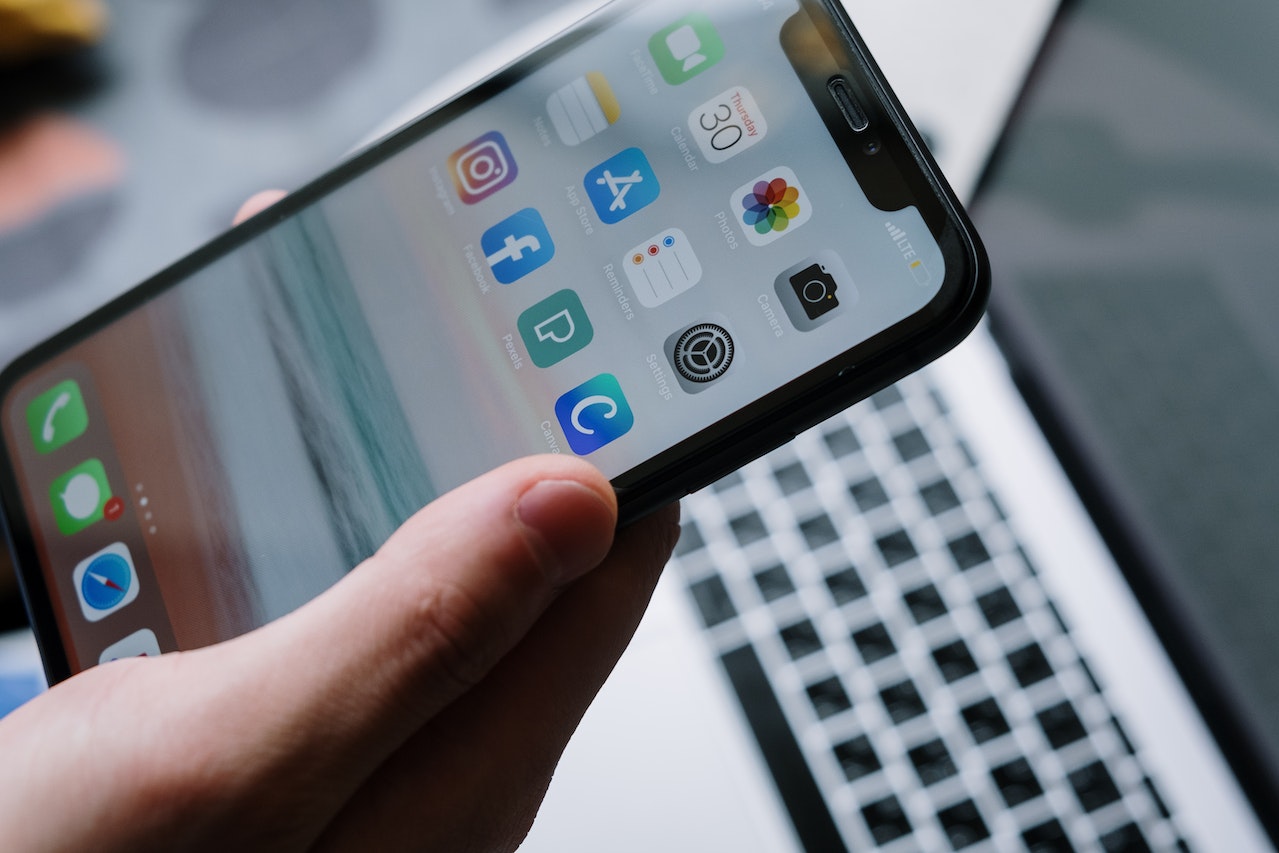In a busy world of social media, constant notifications, and never-ending to-do lists, it’s easy to let procrastination get the better of us and put tasks to the back of our minds. We’ve all been guilty of procrastination, and it can be a hard habit to break.
If you struggle with procrastination and want to transform your life and enhance your productivity, we’ve handpicked 20 of the best apps to help you begin your journey and combat procrastination for good.
20 Apps That Will Help You with Procrastination
- Virtue Map
- Freedom
- Space
- Block Site
- Forest
- Pomotodo
- RescueTime
- Todoist
- HabitBull
- Habitica
- Remente
- Momentum
- ThinkUp
- Fabulous
- Simple Habit
- Sensa.Health
- Sanvello
- Trello
- Carrot
- Rescue Time
If you’re looking for ways to stop procrastinating, we’ve compiled a list of the best apps to help you begin your transformation journey towards being more motivated, productive, and successful.
In a world that relies so heavily on our phones, why not use them to our advantage and in the best way by downloading anti-procrastination apps to conquer procrastination and boost our focus at our fingertips?
1. Virtue Map – Best Overall
Virtue Map is an app for procrastination that helps users boost their productivity and motivation with daily tools, tactics, and techniques to crush habits like homework procrastination. The app has expert coaches with skills and experience to help you transform your life and enjoy confidence, productivity, and a clear path to achieving your goals. Choose from a monthly subscription or a one-time payment option. We have also reviewed Redditors’ opinions on Virtue Map.
Pros:
- A unique and effective programme to help you overcome procrastination for good.
- Allows users to identify the roadblocks that affect procrastination and ways to transform their mindset.
- A supportive community.
Cons:
- Payment is required to unlock the elite features the app offers.
2. Freedom – Best for Focus
Freedom is a popular, widely used app that helps to combat procrastination by blocking out and eliminating distractions to help boost users’ focus. The app helps you gain control and power over your time and work by blocking and silencing notifications, websites, and apps. Free trial, then a paid prescription.
Pros:
- The app’s blocking features limit digital distractions.
- Offers valuable insights into users’ digital habits, highlighting the apps or websites that are causing the most distraction.
Cons:
- Limited flexibility as the app doesn’t accommodate for breaks or specific apps that may not be seen as a distraction to the user.
3. Space – Best for Productivity
Space is an anti-procrastination app that aims to increase users’ focus and productivity by offering insights into what may be occupying their time. Space helps users notice patterns in their procrastination and ways to create a better, more productive relationship with technology. Free with in-app purchases.
Pros:
- It offers valuable insights into a user’s phone patterns, which can help them become more aware of how they spend their time.
- It has the option of goal setting, motivating the users and giving them something to work towards.
Cons:
- The app doesn’t have the control to limit and block all apps on a user’s phone.
- It can potentially be battery-draining due to its monitoring features.
4. Block Site – Best for Concentration
Block Site is an anti-procrastination app that enhances users’ productivity by blocking apps, social media sites and websites that can affect concentration. Free with in-app purchases.
Pros:
- It can block apps and websites that can cause distraction and a lack of focus.
- Offers a productivity tracker for users to see their patterns.
Cons:
- The app doesn’t offer an option for breaks which can be overwhelming and demotivating for some users.
5. Forest – Best for Rewarding Results
Forest is an engaging app for procrastination that uses a unique concept to help users remain focussed. The app works by planting a virtual tree when a user begins their work which grows whilst they work. Users can witness their hard work in the form of a tree, or a forest, that their concentration has created. Free with in-app purchases.
Pros:
- It has a unique and fun concept that is engaging for users to use.
- Users can see a visible result of their hard work, which is motivating and rewarding.
Cons:
- The app doesn’t have blocking features.
- It focuses on a single task more than multitasking, which may not be suited to every user.
6. Pomotodo – Best for Task Management
Pomotodo is an app that focuses on task management by following the Pomodoro Technique, which revolves around bursts of focus to complete tasks. This app enhances user productivity by breaking tasks into smaller intervals to avoid overwhelm, which can cause procrastination. Free, with a premium version.
Pros:
- Users can create to-do lists which can help with organization and motivation.
- The app has a timer built-in to it which keeps users on track with the ability to track their progress.
Cons:
- The app has little room for customization, such as time limits for breaks or individual workflow patterns.
7. RescueTime – Best for Time Tracking
RescueTime is a procrastination app that helps with time-tracking by looking at the time spent on apps or websites. By looking at their analytics, users can make better decisions about how they spend their time, focus on their productivity and work/life balance. Free but also has a premium version.
Pros:
- The time-tracking feature works automatically and helps users identify the time-wasting activities they’re spending time on.
- Users can set goals or time limits for certain activities, and they’ll receive a notification to help their self-awareness.
Cons:
- The app has limited blocking features, meaning it’s unable to block everything that may be causing distractions.
8. Todoist – Best for Scheduling
Todoist is an anti-procrastination app that helps users prioritize their time by organizing tasks and projects. Todoist helps users schedule their plans, making the tasks more manageable and boosting motivation. Free with a premium option.
Pros:
- Users can organize their tasks and prioritize the most important ones.
- Collaboration is available.
Cons:
- Users must upgrade to the paid version to access advanced features like collaboration.
- Some users may find this app overwhelming with its many features and reliance on lists.
9. HabitBull – Best for Developing Positive Habits
HabitBull is an app that helps users build positive habits by tracking their routines and removing the time-wasting activities that lead to procrastination. It allows users to add positive habits to their routines by setting goals. Free with in-app purchases.
Pros:
- App users are informed when they reach a particular goal which gives them a sense of achievement.
- The app has a community feature where users can share their support.
Cons:
- The app has habit categories which some users may find limiting.
10. Habitica – Best for Motivation
Habitica is an app that helps users enjoyably build positive habits. Users are motivated as they complete tasks and become engrossed in the game. This app is free with in-app purchases.
Pros:
- The gamified element keeps users motivated and engaged, giving them a sense of accomplishment and achievement.
- Users can collaborate with others, increasing support and teamwork.
Cons:
- No option for direct customer support alongside the collaboration feature.
- The unique concept may not be for everyone.
11. Remente – Best for Mental Wellness
Remente helps users to increase their focus by looking at improving their mental and emotional wellness to enhance their motivation and well-being. Users can set goals and learn ways to feel good and mentally balanced to achieve to the best of their ability.
Pros:
- Goals are broken down, helping them to seem more manageable.
- It has the option of mood-tracking, assisting users in practicing self-reflection.
Cons:
- Users may have to pay more to access the more advanced features.
12. Momentum – Best for Progression
Momentum is an effective app for procrastination that works by helping users progress towards their goals by setting personal goals and daily reminders for increased motivation. Users can create reminders and tasks and use the in-app timer to stay productive. This app is free.
Pros:
- Users can track their tasks and remain focused towards their goals.
- The built-in focus timer helps users stay on track to succeed.
Cons:
- No option for collaboration with other users.
- The simplified approach may not suit all users.
13. ThinkUp – Best for Positivity
ThinkUp is an app that promotes a more positive mindset with daily affirmations and recordings. The app works to increase positivity by boosting self-love, motivation and productivity. Free, with a premium version available.
Pros:
- It offers a personalized touch.
- The option of tracking progress so users can remain consistent with their affirmations.
Cons:
- The app’s main focus is affirmations, which may not work for everyone.
14. Fabulous – Best for Personal Growth
Fabulous is an app that aims to boost personal growth and create healthy habits with interactive features like habit tracking and challenges. The app is free with a premium option.
Pros:
- Engaging and interactive features.
- A collaborative option for community support.
Cons:
- Some advanced features require payment.
15. Simple Habit – Best for Meditation
Simple Habit is an anti-procrastination app that utilizes the importance of meditation and its impact on stress levels and focus. It has mindfulness exercises that help users control their minds and increase their productivity. Free with a premium option available.
- It offers a wide range of various meditations.
- Quick sessions to keep users stay motivated and engaged.
Cons:
- Meditation may not work for everyone.
16. Sensa.Health – Best for Self-Reflection
Sensa.Health is an app for procrastination that uses a holistic approach to help users manage their time and increase productivity. The app looks into mental health, overcoming challenges, and avoiding burnout. The app requires a paid subscription.
Pros:
- It provides you with tools to help you work on yourself.
- Tailors advice to your needs.
Cons:
- Requires a payment to access the features.
Check out the comparison between the Sensa and Virtue Map apps.
17. Sanvello – Best for Mood Tracking
Sanvello is designed to help users suffering from anxiety, stress and other mental health challenges, like ADHD, that can cause procrastination. The app offers mood-tracking features and meditation exercises. The app is free with a premium version.
18. Trello – Best for Task-Management
Trello helps users boost their productivity by prioritizing tasks, workflows and projects. With collaborative features and a focus on visual task management, this app allows users to prioritize and keep on top of upcoming projects. The app is free with premium versions.
Pros:
- Users can customize the app to suit their needs.
- Ideal for group projects.
Cons:
- The visual elements may be overwhelming for some users.
19. Carrot – Best for Engagement
Carrot is an engaging anti-procrastination app that helps users to remain focused and motivated to complete a task. The app uses AI to engage users, and the gamified approach is unique. The app is free with in-app purchases.
Pros:
- It offers task-management features.
- Customized challenges and goals.
Cons:
- The humorous nature may not appeal to all users.
20. RescueTime – Best for Improving Digital Habits
RescueTime helps users track their digital time and gain insight into the patterns that cause procrastination. The app promotes productivity by blocking distractions, setting goals and offering advice for better time management.
Pros:
- It helps users identify distracting habits.
- Users can set personal goals tailored to them.
Cons:
- Limited tracking of offline activities and non-digital tasks.
Conclusion
Anti-procrastination apps offer useful insights, tactics, tools and techniques to overcome the challenges that cause procrastination. The 20 apps mentioned above are equipped with various features and qualities that can help you boost your motivation, productivity and ability to get tasks done. Use technology for productivity to your advantage, and give a procrastination app a go.
FAQs
Are procrastination apps truly effective?
Using a procrastination app can help you understand personal habits and patterns that may affect concentration and motivation levels. With various features and functionalities, the different apps may work for users if their needs and working styles are met. Apps can work effectively and put you on the right path to achieving your goals.
Are procrastination apps free?
The price of a procrastination app depends on the specific app and the features they provide, and by looking at the different ones, you can decide on the right one for you. Some apps require a monthly subscription, some offer in-app purchases or premium options, and others are free.
What are some other ways to prevent procrastination?
If an apps aren’t for you, there are other ways to combat procrastination, such as anti-procrastination books that offer techniques and insights into transforming your life. Alternatively, you can consciously create plans and goals and set time aside to focus or minimize distractions. Check out our blog for more insightful tips to transform your procrastination habits.




